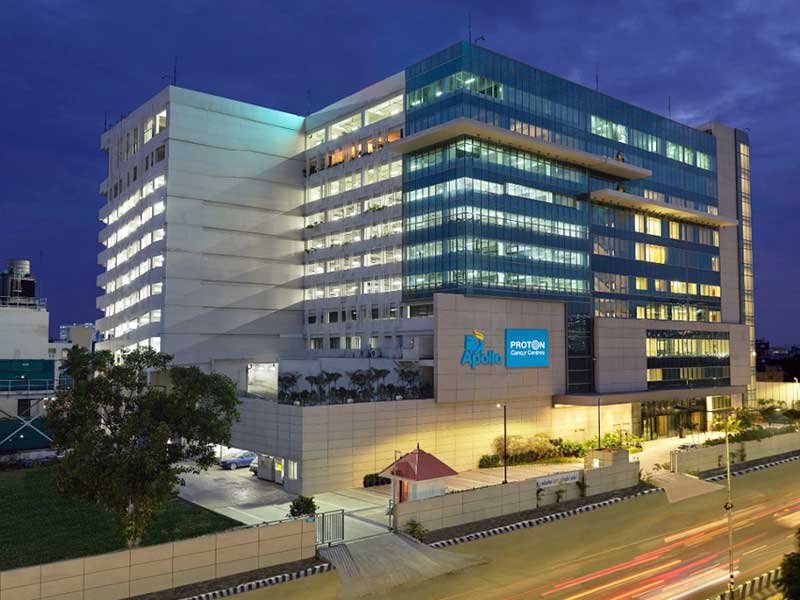What is Oncology?
Oncology is the medical field that is concerned with the study, prevention, diagnosis, treatment, and surgery of cancers. A doctor, who practises oncology is referred to as an ONCOLOGIST.
TYPES OF ONCOLOGY:
Based on the nature of the treatment, oncology is divided into three categories. These are:
Medical Oncology:
In Medical Oncology, cancers are treated with medicines and various types of therapies. These can include chemotherapies, targeted therapies, immunotherapies, etc.
Radiation Oncology:
As the name suggests, this branch of oncology treats cancer with the help of radiation. The specific treatment is called Radiation Therapy. High energy X-Rays and some other agents are used to destroy the cancer cells present in the body.
Surgical Oncology:
The treatment of cancers using operations and surgeries fall in the category of Surgical Oncology. In this branch of oncology, the affected tissues/tumours and the nearby areas are removed to prevent the further spread of the cancer cells.
BRANCHES OF ONCOLOGY:
Oncology is a huge scientific field that has various branches. Some of the most common branches of Oncology are:
Haematologist Oncology: This branch is specifically concerned with the diagnosis and treatment of blood cancers. Like Leukaemia, Myeloma, etc.
Neuro-Oncology: It deals with cancers related to the brain and the nervous system.
Geriatric Oncology: Geriatric Oncology is the specialized field that treats cancer patients of age 65 and above. Geriatric Oncologists go through specific training to treat and cure cancers in older people.
Thoracic Oncology: This field of Oncology specialises in treating cancers of the chest, lungs, and other pulmonary organs.
Urologic Oncology: Urologic Oncology deals with cancers in the kidneys, bladder, prostate gland, and the rest of the genitourinary system.
WHAT DO ONCOLOGISTS DO?
Oncologists, as medical practitioners, have several duties. These are:
Recommending tests: x-rays, and other medical examinations to see if the patient has cancer or not.
Diagnosing and explaining the diagnosis to the patient.
Giving relevant information like the stage of cancer, possible treatments, etc.
Providing the best and most relevant treatment.
Helping with side effects of treatments.
Modalities of treatment:
Surgery-
Surgery is the most common and traditional kind of cancer treatment, and it can be performed using a variety of specialised surgical methods. The degree and amount of the disease are determined through diagnosis and staging, which both include surgery.
Both preventive surgery and therapeutic or curative surgery are examples of surgical therapy. The patient may choose to have preventative surgery, which entails the excision of tissue that is not now malignant but could become so. One typical instance is the removal of breasts as a preventative measure in women who have BRCA gene mutations that increase their chance of developing breast cancer.
To treat a patient, curative surgery frequently entails the removal of the tumour and is combined with radiotherapy or chemotherapy.
Radiation treatment-
Radiation is used in radiotherapy to kill cells.
Radiation therapy tries to inhibit the division of cancer cells in order to kill them and remove the tumour.
However, radiation therapy is not selective and may also harm the nearby healthy cells that are dividing quickly. This includes the cells that line the mouth and the hair follicles, which are frequently damaged and result in alopecia (hair loss) and mucositis (mouth sores or ulcers), respectively.
In the course of radiation, other dividing cells, such as blood cells, are also damaged, resulting in low White blood cell counts and an increased risk of infection, as well as low Red blood cell counts and anaemia. A low platelet count that causes bleeding tendencies could also exist.
Chemotherapy-
The use of medications to kill cancer cells is known as chemotherapy. Chemotherapeutic medications can be given intravenously, intramuscularly, or as pills. In order to treat cancer, several hundreds of chemotherapeutic medications are utilised, either singly or in combination.
Numerous chemotherapies exist, and the majority of them fall under the antineoplastic or anticancer therapy umbrella. Alkylating agents, antimetabolites, and enzyme inhibitors are only a few of the different kinds of medications that are employed in antineoplastic therapy.
Typically, there are 3 stages of chemotherapy:
The initial intensive period of chemotherapy is known as induction.
Consolidation: This stabilises the therapy.
Maintenance: This phase may go on for a longer time.
How to prepare?
Be ready for adverse reactions. To prepare for side effects typical of your particular treatment, your team will work with you. These could consist of weariness, nausea, and other negative consequences. This may include suggestions for healthy eating and consistent activity.
Make a plan for providing care. Chemotherapy patients may require additional assistance with transportation, housework, and other responsibilities while undergoing treatment. Caregiving is a term used to describe the help that family and friends can offer throughout this period. What kind of caregiving you might require at home during and after treatment? Ask your treatment team.
Your treatment's duration will vary depending on a variety of variables. A few chemotherapy treatments last for hours or minutes. Some are distributed over a period of days or weeks. Chemotherapy with continuous infusion is what this is. Hence manage your work schedule accordingly.
CAN ONE ONCOLOGIST CURE ALL CANCERS?
A very common misconception amongst most people is that any oncologist can treat any cancer. This is not true.
Just like any other medical field, Oncology also has doctors who specialise in a particular type of cancer. There are Lung Cancer Specialists, Breast Cancer Specialists, Tumour Specialists, Skin Cancer Specialists, and so on.
So, according to the diagnosis, one should refer to a specialist for that particular cancer.
Conclusion
Hence, a lot of research is still going on in Onco-therapy by using immunoglobulins, EGFR-targeted therapies and Brachytherapy thus decreasing the mortality rate.
Show Less











































































